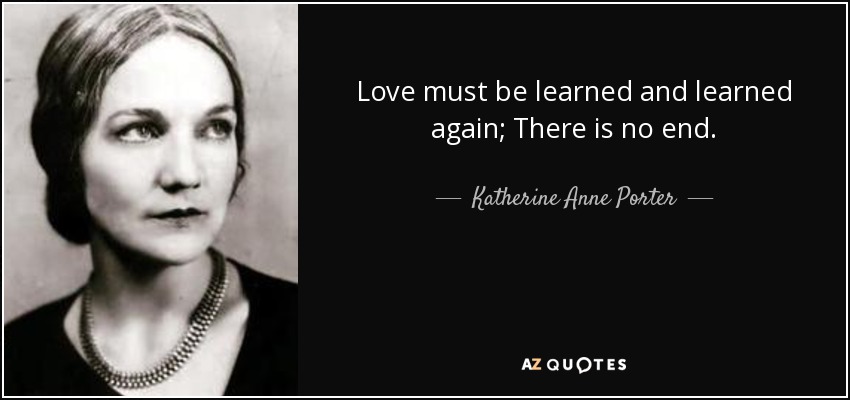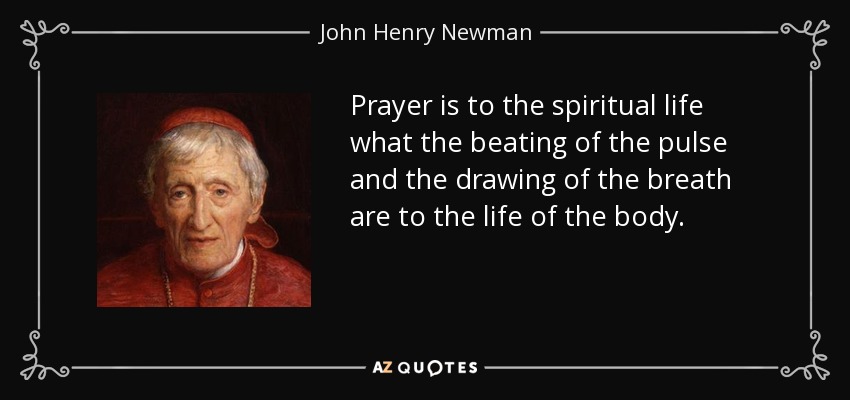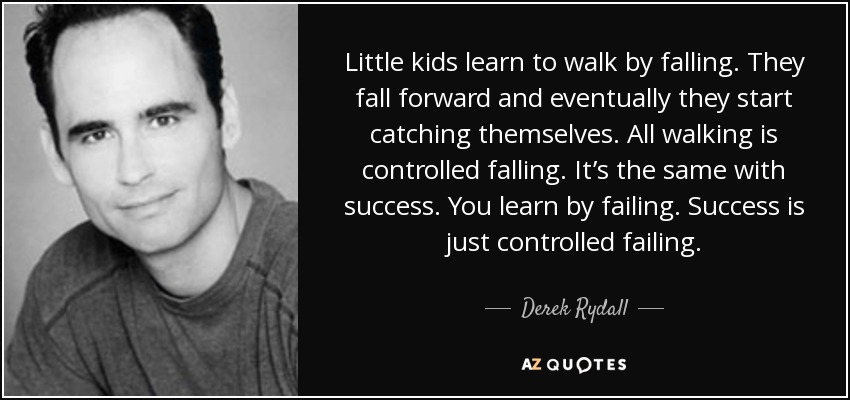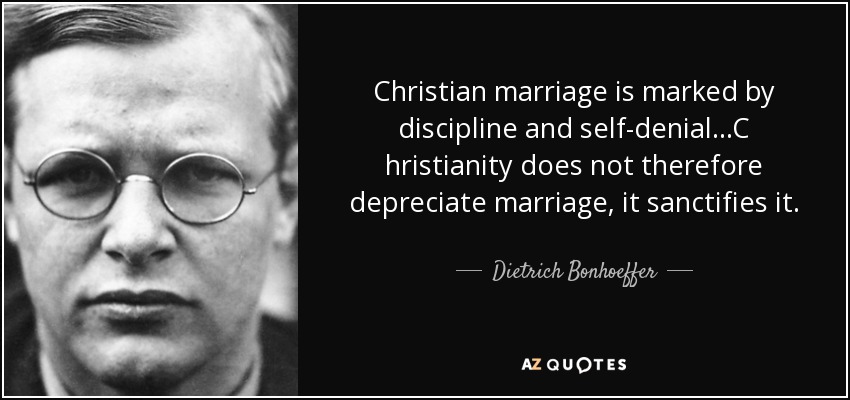Click here to return to Blog Post Intro

The Greatest Challenge in the World
A Call to Holiness More Than Happiness
Earlier in this century, Katherine Anne Porter bemoaned how “romantic love crept into the marriage bed, very stealthily, by centuries, bringing its absurd notions about love as eternal springtime id marriage as a personal adventure meant to provide personal happiness.”
Any mature, spiritually sensitive view of marriage must built on the foundation of mature love rather than romanticism. But this immediately casts us into a countercultural pursuit.
The real transforming work of marriage is the twenty-four-hours-a-day, seven-days-a-week commitment. This is the crucible that grinds and shapes us into the character of Jesus Christ.
Just after Paul said, “It is good for a man not to marry,” he follows it up with these words: “But since there is so much immorality, each man should have his own wife, and each woman her own husband” (1 Corinthians 7:2).
If the purpose of marriage was simply to enjoy an infatuation and make me “happy,” then I’d have to get a “new” marriage every two or three years. But if I really wanted to see God transform me from the inside out, I’d need to concentrate on changing myself rather than on changing my spouse.
Much of the dissatisfaction we experience in marriage comes from expecting too much from it. Marriage calls us to an entirely new and selfless life.
Finding God in Marriage
Marital Analogies Teach Us Truths About God
Hosea leads us into a startling reality–God views his people as a husband views his wife: “ ‘In that day,’ declares the Lord, you will call me “my husband”; you will no longer call me “my master.”… I will betroth you to me forever’” (Hosea 2:l6, 19a).
God wants us to relate to him with an obedience fueled by love and intimacy, not by self-motivated fear.
Augustine (a.d. 354-430), suggested that there are three benefits of marriage: offspring, faith (fidelity), and sacrament. Of the three benefits, he clearly points to the latter (sacrament) as the greatest. Centuries after Augustine, Anglican Reformers responded to these three blessings with three “causes.” An early (1549) prayer book suggests that marriage is for procreation, a remedy against sexual sin, and mutual comfort.
In a man-centered view, we will maintain our marriage as long our earthly comforts, desires, and expectations are met. In a God-centered view, we preserve our marriage because it brings glory to God and points a sinful world to a reconciling Creator. The first purpose in marriage—beyond happiness, sexual expression, the bearing of children, companionship, mutual care and provision, or anything else—is to please God.
Learning to Love
How Marriage Teaches Us to Love
Dr. John Barger said, “Consider the virtues I have recommended as necessary to a deep relation with your wife: patience, listening, humility, service, and faithful, tender love.” The beauty Christianity is in learning to love, and few life situations test that so radically as does a marriage.
Holy Honor
Marriage Teaches Us to Respect Others
While many people fight to receive respect, Christian marriage calls us to focus our efforts on giving respect. We are called to honor someone even when we know only too well their deepest character flaws.
Every marriage goes through the stage of an enrapturing love quieting down to a predictable routine. The mystery is replaced with an almost comical familiarity. Contempt creeps in when we fixate on our spouse’s weaknesses. Every spouse has these sore points. We combat contempt through gratitude for our spouses. And Jesus provides a remedy that is stunning in its simplicity. He tells us to take the plank out of our own eye before we try to remove the speck from our neighbor’s eye (Matthew 7:3-5).
There is a process, as Thomas describes, “I had to learn to better understand Lisa before I could truly respect her, and I had to respect her before I could fully love her. This is a tremendously spiritually therapeutic process, an emptying of myself, so I can grow more in my love for others.” Thomas asked himself, “Does Lisa feel like she’s married to Jesus?” Over and over in Scripture, it is clear that our duty as Christian husbands is to become more and more like Jesus Christ. Over time, our wives should start to feel like there’s at least a family resemblance.
As Betsy and Gary Ricucci point out, “Honor isn’t passive, it’s active. We honor our wives by demonstrating our esteem and respect: complimenting them in public; affirming their gifts, abilities, and accomplishments; and declaring our appreciation for all they do. Honor not expressed is not honor.”
The Soul’s Embrace
Good Marriage Can Foster Good Prayer
Prayer is essential to the Christian life. Paul urges us to pray continually (1 Thessalonians 5:17).
A modern writer, Terry Glaspey, sums it up well when he writes, “Prayer is a work to which we must commit ourselves if we are to make sense of our lives in the light of eternity.”
Much Christian teaching has gotten it exactly backwards. We’re told that if we want to have a stronger marriage, we should improve our prayer lives. But Peter tells us that we should improve our marriages so that we can improve our prayer lives.
Paul sees abstention as dangerous, and he very practically suggests, “Do not deprive each other, unless perhaps by mutual consent and for a time, so that you may devote yourselves to prayer” (1 Corinthians 7:5). Sleeping with your spouse can leave your heart, mind, and soul free, for a time, to vigorously pursue God in prayer without distraction.
In many different ways, marriage feeds into and builds our prayer lives. By learning to respect others, meeting others sexual needs, overcoming dissension, and using the analogies of marriage to foster more creative prayer, we can build and maintain active, growing, and meaningful prayer lives.
The Cleansing of Marriage
How Marriage Exposes Our Sin
It’s not a productive conversation to argue either celibacy or marriage as the preferred pathway to holiness. Christians have walked both paths successfully. The important thing is to view the challenges of our particular life situation as a platform for growth.
Marriage often holds up a mirror to our sin. It forces us to face myself honestly and consider our character flaws, selfishness, and anti-Christian attitudes, encouraging us to be sanctified and cleansed and to grow in godliness.
Francois Fenelon, an 18th century Christian mystic, wrote that “all the saints are convinced that sincere humility is the foundation of all virtues,” an opinion shared by the great Anglican writer, William Law: “[Humility] is so essential to the right state of our souls that there is no pretending to a reasonable or pious life without it. We may as well think to see without eyes or live without breath as to live in the spirit of religion without the spirit of humility.” And what is humility? In part, Fenelon tells us, it is “a certain honesty, and childlike willingness to acknowledge our faults, to recover from them, and to submit to the advice of experienced people; these will be solid useful virtues, adapted to your sanctification.”
As Thomas puts it, couples don’t fall out of love so much as they fall out of repentance. Sin, wrong attitudes, and personal failures that are not dealt with slowly erode the relationship. Whenever marital dissatisfaction rears its head in your marriage, check your focus. Thomas points out that “the times that I am happiest and most fulfilled in my marriage are the times when I am intent on drawing meaning and fulfillment from becoming a better husband rather than from demanding a better wife.”
Sacred History
Building the Spiritual Discipline of Perseverance
German philosopher Friedrich Nietzsche suggested that marriage is a “long conversation,” urging us, therefore, to marry a friend.
The Bible often uses the analogy of a marriage between God and His people (the Israelites in the Old Testament then the “Bride” of Christ, or the Church, in the New Testament). This relationship between God and his people was anything but easy. There were periods of great joy and celebration (witness the love affair of God and his people when Solomon dedicated the temple); seasons of frustration and anger (when God allowed foreign tyrants to conquer); times of infidelity and apostasy (when Israel chased after other gods); and excruciating seasons of silence (including a four-hundred-year stretch between the Old and New Testaments). Sound like any relationship you know? Your own marriage, for example?
One characteristic holds the history of God and Israel together—perseverance. Becoming one—in the deepest, most intimate sense—takes time. It’s a journey that never really ends, but it takes at least the span of a decade for the sense of intimacy to really display itself in the marriage relationship.
Building a sacred history together teaches us to be persistent in doing good, even when we want to do something else. This commitment to perseverance teaches us the basic Christian discipline of self-denial.
Divorce, by definition, is a failure—of love, forgiveness, and patience, or (at the very least) it is the result of poor judgment in choosing a difficult partner in the first place.
If we are serious about pursuing spiritual growth through marriage, we must convince ourselves to refrain from asking the spiritually dangerous question: “Did I marry the ‘right’ person?” A far better alternative to questioning one’s choice is to learn how to live with one’s choice.
Sacred Struggle
Embracing Difficulty in Order to Build Character
The “collisions” of marriage can create relationships of beauty. Beauty is often birthed in struggle. These points of impact may not be “fun”—in fact, they can make us feel like were being ripped apart—but the process can make us stronger, build our character, and deepen our faith. If there were no collision between India and Eurasia, there would no Himalayas.
If your marriage is tough, get down on your knees and thank God that he has given you an opportunity for unparalleled spiritual growth. You have the prime potential to excel in Christian character and obedience. Struggling successfully and profitably brings a deeper joy than trouble-free living.
Otto Piper points out that “there is always an element of mistrust implied in the marriage contract.’’ The reason we promise to love each other “till death do us part” is precisely because our society knows that such a promise will be sorely tried—otherwise, the promise wouldn’t be necessary!
If there is one thing young people need to hear, it’s that a good marriage is not something you find, it’s something you work for. It takes struggle. You must crucify your selfishness. You must at times confront and at other times confess.
Every marriage has sorrows. Every marriage has trials. We don’t get to choose which sorrows or trials we are called to bear, only that we must endure them. If we are seeking glory, honor, and immortality before God, daily and quiet persistence, faithfulness, and obedience is the road to get there. Anonymous sufferings are actually the best kind, Jesus tells us—otherwise, others might recognize us and compliment us and that, alone, will be our reward (see Matthew 6:16-18).
Falling Forward
Marriage Teaches Us to Forgive
One researcher found that the average married couple actively communicates on the average just twenty-seven minutes a week, and that they exchange the most words on their third date and the year before a divorce.
One of the great spiritual challenges for any Christian is to become less self-absorbed. We are born intensely self-focused.
Thomas explained that before he attempted to jump a fast-moving creek, one of his friends advised him, “Just make sure you fall forward.” As long as he kept his momentum going forward, he wouldn’t be swept into the stream. Christian marriage is also about learning to fall forward. Obstacles arise, anger flares up, and weariness dulls our feelings and senses. Maturity is reached by continuing to move forward past the pain and apathy.
Donald Harvey writes, “Intimate relationships, as opposed to intimate experiences, are the result of planning. They are built. The sense of union that comes with genuine spiritual closeness will not just happen.”
Kathleen and Thomas Hart write, “One can do many external deeds of love and still hold back the really precious gift, the inner self. This gift can be given only through communication.” Communication is thus the blood of marriage that carries vital oxygen into the heart of our romance.
We have a duty to meet our spouse in their need. Correspondingly, we also have a Christian duty not to demand too much of our spouse. The wife can recognize that her husband may be able to tolerate just so much conversation; the husband will need to accept the idea that daily sexual relations may be less than enticing to most wives. This commitment toward interpenetration teaches us to surrender our own demands at the same time that we strive to meet our spouse’s demands. Ideally, if both spouses do this, the end result will be a marvelous and happy compromise.
Conflict provides an avenue for spiritual growth. To resolve conflict, by definition we must become more engaged, not less. As the Whiteheads observe in A Sense of Sexuality, “The challenge is not to keep on loving the person we thought we were marrying, but to love the person we did marry!” Learning to successfully negotiate conflict will have a direct influence on our relationship with God, for the time will come when we feel we have a bone to pick with him too.
Compromise is another key for successful fellowship within marriage. It’s proof that we’re willing to give ground for no other reason than that we value the ongoing relationship more than we do asserting our rights, preferences, or wishes. Compromise is the cement of fellowship. Falling forward also leads in the end to greater marital satisfaction. Although the purpose of this book is to help us use our marriages to draw closer to God, when we do that, we often find that our marriages will improve as well, increasing our own satisfaction.
One of marriage’s primary purposes is to teach us how to forgive. Marriage teaches us—indeed, it practically forces us—to learn to live by extending grace and forgiveness to people who have sinned against us. If we’re married, the fact is we’re failing in some way, and we are also married to someone who is failing in some way too. The question is: will we fall forward, or will we fall away?
Make Me a Servant
Marriage Can Build in Us a Servant’s Heart
The essence of Christianity is found in Philippians 2. There Paul urges us to do nothing (it’s these absolutist words that can make Scripture so troubling) “out of selfish ambition or vain conceit, but in humility consider others better than yourselves. Each of you should look not only to your own interests, but also to the interests of others” (Philippians 2:3-4).
If we want to enter a truly Christian marriage, we have to turn 180 degrees and ask ourselves, “How can I serve my mate?”
In his audiotape series According to Plan, C.J. Mahaney pleads with men, “Gentlemen, what are we doing each day for our wives that involves sacrifice? What are you doing each day for your wife that is costing you something?”
To fully sanctify the marital relationship, we must live it together as Jesus lived his life—embracing the discipline of sacrifice and service as a daily practice. To become a servant is to become radically strong spiritually. There is true joy when true service is offered up with a true heart.
Whether sexuality becomes a celebration of service or a point of contention depends largely on one or both partners’ selflessness. Where sex becomes spiritually debilitating is when it ceases to be: reciprocal. One of the problems with adolescent sexual awakening—as well as with a fascination with pornography and the like—is that it is usually divorced from the concept of giving. It too quickly becomes all about experiencing, receiving, trying to understand the mystery—in a word, about getting. A growing, healthy, giving, and selfless sex life is not easy to maintain. And yet it provides the setting for tremendous spiritual growth.
Catholic philosopher Dick Westley observes, “The fact is that sexual activity, when it is truly love-making and the work of the spirit, is the antithesis of self-indulgence. It is the height of asceticism.”
Learning to give sexually instead of take, learning to lessen your own demands and to be more sensitive to your spouse’s demands—these small choices will reap big dividends in your spiritual life because they are teaching you to become more selfless. You are imitating Jesus Christ and taking on the nature of a servant, which is your calling as a Christian.
Sexual Saints
Marital Sexuality Can Provide Spiritual Insights and Character Development
If sex is going to turn us toward God and each other, it is vital that we examine it with Christian understanding. Christian spirituality serves us in at least three ways here:
- It teaches us the goodness of sex while reminding us that there are things that are more important than sex.
- It allows us to experience pleasure without making pleasure the idol of our existence.
- It teaches us that sex can certainly season our lives but also reminds us that sex will never fully nourish our souls.
To use our sexuality as a spiritual discipline—to integrate our faith and flesh, so to speak—it is imperative that we become theologically grounded enough to incorporate into our thinking a Jewish view of sexuality. God made flesh, and when God made flesh, he created some amazing sensations. While the male sexual organ has multiple functions, the female clitoris has just one—sexual pleasure. By design, God created a bodily organ that has no other purpose than provide women with sexual ecstasy. This wasn’t Satan’s idea—it was God’s. And God called every bit of his creation “very good” (Genesis 1:31).
Ironically, the idolatry of sex and obsessive guilt over sex accomplish the same thing—they keep the focus on self, whether it be out of enjoyment or despair. Gratitude, on the other hand, turns our hearts toward God.
While physical pleasure is good and acceptable, we mustn’t reduce sex to a merely physical experience. It is about more—much more—than that. Sex speaks of spiritual realities far more profound than mere pleasure. The deeply physical and fleshly experience of sex can be enjoyed without guilt, but there is an even deeper spiritual fulfillment inherent when a man and woman engage in sexual relations. Don’t reduce sex to either a physical or spiritual experience. It is both—profoundly so.
Consider the spiritual side sexuality, examining how we can be transformed spiritually through this very physical act. We’ll do this by seeking to have our notion of beauty transformed; learning to give what we have; being called out of ourselves; learning to become passionate; and cultivating the art of celebration.
Keeping in good shape is a gift we can give to our spouse. But so is the grace of acceptance—particularly on the part of husbands—in recognition that age and (in case of women) childbearing eventually reshape every individual body. Marriage helps to move men from an obsession over bodies “that do not exist” into a reconsideration of priorities and values. Marriage calls us to redirect our desires to be focused one woman or one man in particular rather than on society’s view of attractive women or men in general.
Those who find meaning and fulfillment not just in sexuality but in parenting their children, serving God, engaging in a consistent prayer life, and living virtuously have a much broader base from which to enjoy life. A thoughtful and godly marriage will move us in this direction.
Sex may be God’s way of calling us to connect with each other. This need for physical expression will sometimes literally force us to work through and resolve emotional and spiritual conflict. We can learn to use the sex drive to groom our character. Out of a need to be intimate with their wives, husbands may learn to show tenderness and empathy. Wives may use physical intimacy to help capture their husbands’ interest emotionally.
The German philosopher Martin Heidegger argued that our passions tune us into the world. Tune us into the world… A sexually fulfilled and active wife radiates a certain energy. A man who is sexually satisfied with his wife exudes a sense of well-being. A man who is passionate about his wife can be passionate about justice, about God’s kingdom, about his own children, about the environment. On the flip side, if he is facing serious sexual problems within his marriage, a feeling of frustration and a certain despondency is liable to settle like a cloud over his work, his faith, and his fellowship. He is likely to become selfishly preoccupied and self-absorbed.
Sex is about physical touch, to be sure, but it is about far more than physical touch. It is about what is going on inside us. As Thomas puts it, “Developing a fulfilling sex life means I concern myself with bringing generosity and service to bed. It means I see my wife as a holy temple of God.”
Sacred Presence
How Marriage Can Make Us More Aware of God’s Presence
Francois Fenelon, one of the great Christian mystics of all time, wrote the following in the seventeenth century, “A general rule for the good use of time is to accustom oneself to live in a continual dependence on the Spirit of God, receiving from moment to moment whatever it pleases him give us.”
Brother Lawrence’s Practicing the Presence of God also from the seventeenth century, pointed out that we should “establish ourselves in the presence of God by continually talking to him.”
In marriage, it is our duty to communicate. To be sure, every marriage needs times of silence and meditation. But in our relationship with our spouse, communication is a discipline of love. Our reaching out to each other mirrors God reaching out to us.
The tongue can be cruel in two ways: by speaking evil, or by refraining from speaking good. We need to recognize the offensiveness of pervasive silence within marriage.
Christianity does not direct us to focus on finding the right person; it calls us to become the right person. Let your relationship with your spouse point you to what you really need most of all: God’s love and active presence in your life. Above all, don’t blame your spouse for lack of fulfillment; blame yourself for not pursuing a fulfilling relationship with God.
Thomas explains, “As odd as this may sound, I have discovered in my own life that my satisfaction or dissatisfaction with my marriage has far more to do with my relationship to God than it does with my relationship to Lisa.”
We were made to worship. If we don’t grow in our worship of God, we will descend to worship something or someone else—power, money, our reputation, a sports team—it could be anything.
A man and woman dedicated to seeing each other grow in their maturity in Christ; who raise children who know and honor the Lord; who engage in business that supports God’s work on earth and is carried out in the context of relationships and good stewardship of both time and money—these Christians are participating in the creativity that gives a spiritually healthy soul immeasurable joy, purpose, and fulfillment.
Sacred Mission
Marriage Can Develop Our Spiritual Calling, Mission, and Purpose
One of the great (and often unexplored) challenges of marriage is maintaining a sense of individual mission while living in a cooperative relationship.
A married woman once wrote Francis to express her concern that her marital and spiritual devotion were at conflict. De Sales dismissed this concern out of hand, encouraging her, “Let us be what we are, and let us be it well.” In other words, if we are married, we are married, and we must not try to live as if we were otherwise.
God is not served well if we turn off everyone around us in our selfish pursuit of devotion. “We must sometimes leave our Lord,” Francis affirmed, “in order to please others for the love of him.”
A spiritually alive marriage will remain a marriage of two individuals in pursuit of a common vision outside themselves. The importance of service—looking beyond the marriage relationship—is necessary because marriage itself is not eternal. Otto Piper suggests that “the loss of a spouse is not simply a sad natural occurrence but… it is a divine intervention by which a marriage is terminated so that the surviving partner may devote himself fully to the service of God in the Church.”
What if Christian couples took the challenge to become a “couple-saint”? No longer defining their relationship to God in solitary terms, but working together to present themselves as a holy unit, a pair of cherubim in the middle of whom God’s presence is radically enlivened?







